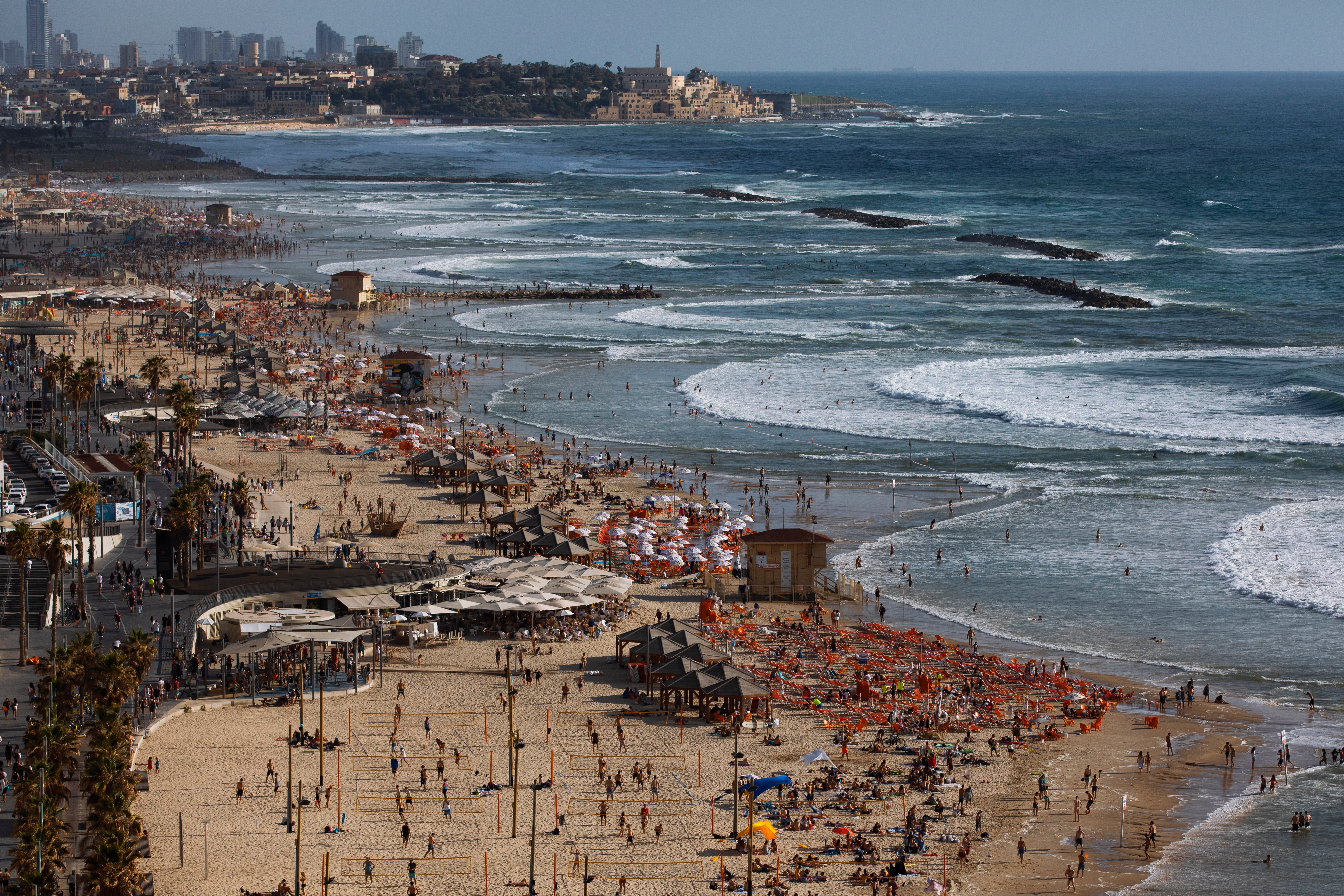Tel Aviv is priciest city, outranking Paris in new report
Residents of Israel’s seaside metropolis Tel Aviv have for years complained of how expensive it is, with living costs taking a chunk out of their paychecks

Your support helps us to tell the story
From reproductive rights to climate change to Big Tech, The Independent is on the ground when the story is developing. Whether it's investigating the financials of Elon Musk's pro-Trump PAC or producing our latest documentary, 'The A Word', which shines a light on the American women fighting for reproductive rights, we know how important it is to parse out the facts from the messaging.
At such a critical moment in US history, we need reporters on the ground. Your donation allows us to keep sending journalists to speak to both sides of the story.
The Independent is trusted by Americans across the entire political spectrum. And unlike many other quality news outlets, we choose not to lock Americans out of our reporting and analysis with paywalls. We believe quality journalism should be available to everyone, paid for by those who can afford it.
Your support makes all the difference.Residents of Israel’s seaside metropolis Tel Aviv have for years complained of how expensive it is, with living costs taking a chunk out of their paychecks.
Now a new report affirms their quibbles. Tel Aviv has emerged as the most expensive city to live in, according to the Economist Intelligence Unit a research group linked to the Economist magazine. The city, which was previously ranked 5th most expensive, has now surpassed other pricy places like Paris and Singapore
Economists attribute the jump to a strong appreciation of the shekel against the dollar. In its report Wednesday, the Economist Intelligence Unit also pointed to a rise in grocery and transport costs. The report did not include housing prices — another common complaint among young professionals and families trying to live in the bustling city.
“It’s really hard to live here. You pay the rent and you pay for something small and you live, like, from paycheck to paycheck so it’s really hard,” said Ziv Toledano, a transplant from northern Israel. He said his expenses have nearly doubled in Tel Aviv.
Israeli news outlets constantly compare the prices of basic goods in Israel to other Western nations, hammering in to audiences what has been clear to their wallets for years: that the country is far more expensive than others.
Tel Aviv is Israel’s financial and cultural epicenter. It boasts a thriving high-tech scene, world-class restaurants and a stretch of Mediterranean beach lined by gleaming new hotels and condominiums.
The shekel is one of the world’s strongest currencies, with its value buoyed in large part by heavy foreign investment in the local high tech scene.
Dan Ben-David, head of the Shoresh Institution for Socioeconomic Research and an economist at Tel Aviv University, said goods and services in Israel in general are more expensive than in other countries. Tel Aviv is more expensive because it is the country’s economic hub, with high paying tech jobs drawing talent from across the country who are driving up prices of food and rent.
“Israel is expensive, and in that regard, Tel Aviv is more expensive than other places in Israel’s because that’s where the good jobs are,” he said.
The city draws even more Israelis wishing to live close to its vibrant cultural and social scene. Compounding the issue, Ben-David said, is major congestion leading into the city and inadequate transit to its suburbs and surrounding cities, sending even more people wanting to reside in the city. That, along with foreign buyers, has sent real estate prices skyrocketing, making purchasing an apartment in Tel Aviv almost unattainable for the average Israeli. Even modest apartments in desirable areas can cost 4 million shekels, or over $1.2 million.
A decade ago, hundreds of thousands of Israelis took to the streets to demand a solution to the rising cost of living.
Successive Israeli governments have struggled to create better job opportunities in other parts of the country and attempts to extend public transit are ongoing, but slow.